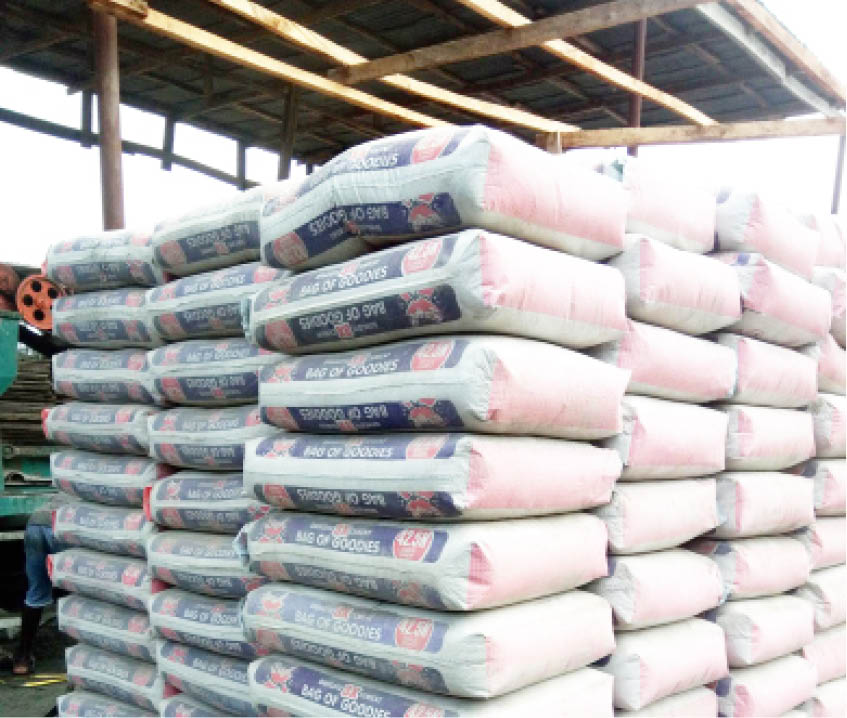The Rising Demand And Cost Of A Bag Of Cement In Nigeria
In the construction industry of Nigeria, the significance of a bag of cement cannot be overstated. As the backbone of most building projects, cement plays a crucial role in the country’s infrastructural development. With Nigeria experiencing rapid urbanization, the demand for cement has surged, leading to fluctuations in its price. Understanding the factors behind these changes is essential for builders, homeowners, and investors alike.
The price of a bag of cement in Nigeria is not just a number; it reflects various economic, environmental, and social factors. As the population continues to grow, so does the need for residential and commercial structures. This article delves into the intricacies of cement pricing in Nigeria, exploring why it matters to the everyday citizen and the construction industry. By examining these aspects, we can better appreciate the challenges faced by builders and the implications for the economy as a whole.
Furthermore, the analysis of a bag of cement in Nigeria goes beyond mere numbers. It touches on the stories of those who rely on cement for their livelihoods, including laborers, contractors, and manufacturers. In this article, we will explore the current state of the cement industry in Nigeria, the factors influencing its price, and the potential future trends that could affect the market. Join us as we navigate through the world of construction and economics in Nigeria.
What is the Current Price of a Bag of Cement in Nigeria?
The price of a bag of cement in Nigeria can vary significantly based on several factors, including location, brand, and market conditions. As of 2023, the average price ranges from ₦3,500 to ₦4,500 per bag. Major cities such as Lagos and Abuja often see higher prices due to increased demand and transportation costs. In contrast, rural areas may have slightly lower prices, albeit with limited availability.
Why Does the Price of Cement Fluctuate in Nigeria?
Several factors contribute to the fluctuating price of a bag of cement in Nigeria:
- Supply Chain Disruptions: Transportation issues, strikes, and fuel prices can impact the supply chain, causing shortages and price hikes.
- Raw Material Costs: The prices of raw materials such as limestone and clay can affect production costs, which are then passed on to consumers.
- Government Policies: Tariffs, subsidies, and regulations can play a significant role in cement pricing.
- Market Demand: Increased construction activities during certain seasons can lead to higher demand and consequently higher prices.
How Does Cement Affect the Nigerian Economy?
The cement industry in Nigeria is a critical component of the country's economy. It contributes to job creation, infrastructure development, and overall economic growth. The construction sector relies heavily on cement, and any changes in its pricing can have ripple effects throughout the economy. When cement prices rise, it can lead to increased construction costs, which may deter investment and slow down economic development.
What Are the Major Cement Brands in Nigeria?
Several major players dominate the Nigerian cement market:
- Dangote Cement: The largest cement producer in Africa, known for its quality and distribution network.
- lafarge Africa: A key player in the industry, offering a variety of cement products.
- BUA Cement: A growing company that has expanded its production capacity in recent years.
- Unicem: A joint venture that has made significant contributions to the southern region of Nigeria.
What are the Challenges Facing the Cement Industry in Nigeria?
Despite its growth, the cement industry in Nigeria faces several challenges:
- Infrastructural Deficiencies: Poor roads and transportation networks can hinder the distribution of cement.
- Energy Costs: High energy costs for production can lead to increased prices for consumers.
- Competition: The influx of imported cement poses a challenge to local manufacturers.
- Regulatory Hurdles: Navigating government regulations can be complex and time-consuming.
What is the Future of Cement Pricing in Nigeria?
The future of a bag of cement in Nigeria will likely be influenced by various factors:
- Economic Growth: Continued economic development can drive demand for cement.
- Technological Advancements: Innovations in production methods may lower costs and improve efficiency.
- Government Initiatives: Policies aimed at supporting the construction sector could stabilize prices.
- Global Market Trends: Changes in the global cement market can also impact local prices.
Conclusion: The Importance of Understanding Cement Prices
In conclusion, a bag of cement in Nigeria is more than just a construction material; it is a vital indicator of the country’s economic health and development. By understanding the factors that influence cement pricing, stakeholders can make informed decisions that benefit both individual projects and the broader economy. As Nigeria continues to develop, the cement industry will play an essential role in shaping the nation’s future.
```
Unraveling The Enigma Of Jynxi Brother
Unleashing Courage: Dares To Ask Over Text
Discovering The Allure Of Juicy Girlfiends


